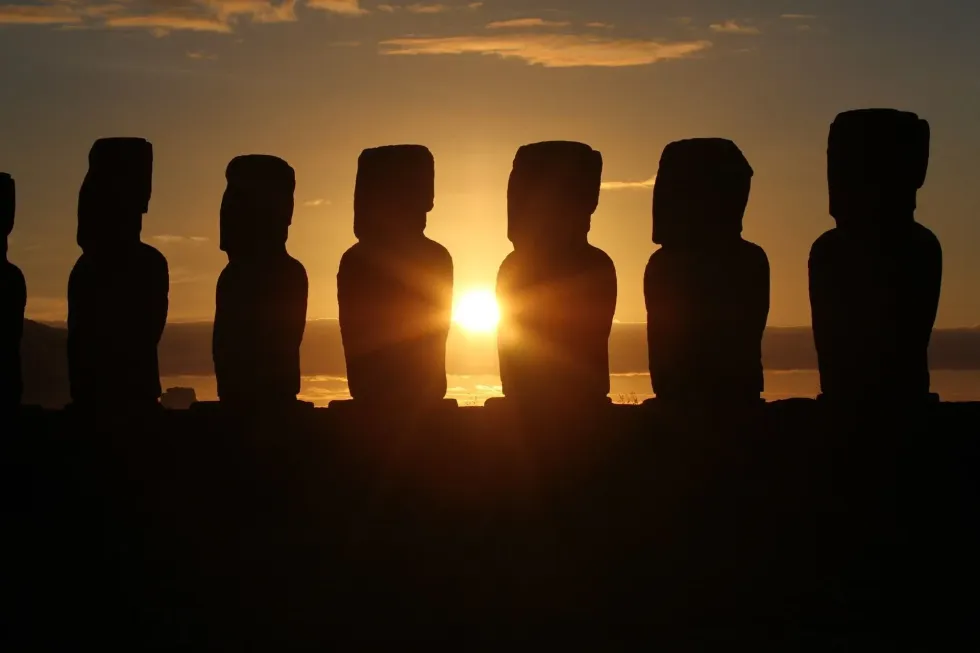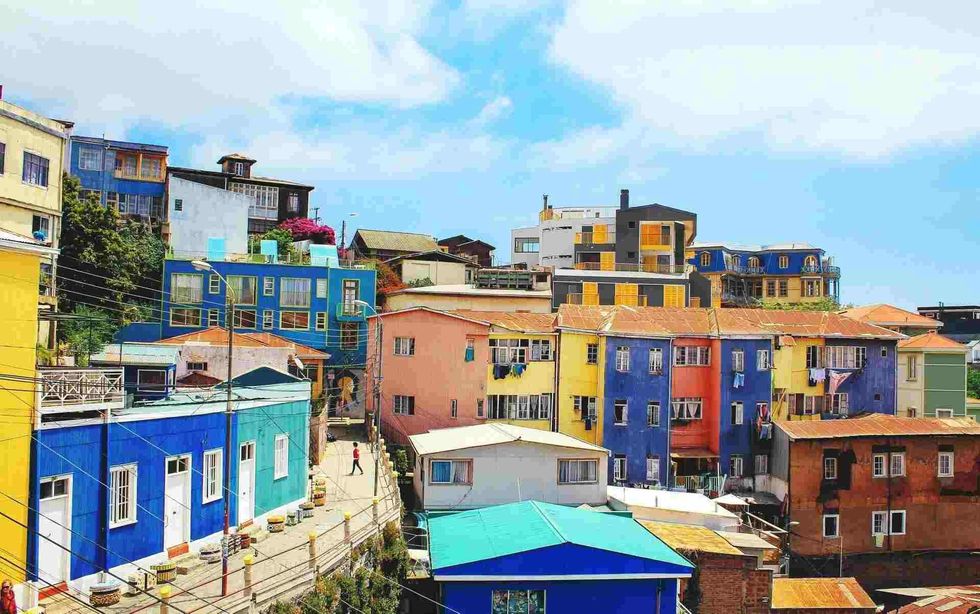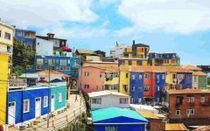63 Chilean Government Facts: Election, Policy & Much More!
We can find Chile along the western side of South America on the world map.
Each country's government has a crucial role in ensuring the safety of its citizens from external threats and providing them with food, means of livelihood, and economy. Some nations have built great walls to protect people from enemies, while others have shifted people to safer zones in dire need.
Elections are conducted in almost every country to select members of the government who should hold the office. Most nations have adopted a democratic form of government, where people in the country have the right to choose their representatives.
Elections have been part of ancient Greece and Roman civilizations. Elections also play a role in national integration by bringing all kinds of people together.
Government policies are declarations of government plans, aims, and strategies related to the functioning of the government in a country. The head of the state or the president promulgates it. The government policies apply to every citizen irrespective of social and political rank. In short, these policies keep a check on the future and the economy.
Tierra del Fuego is an enclave that lies in the southern point of South America. The land is a triangular area in the United Nations, and Chile has occupied about two-thirds of the place, and Argentina occupies one-third.
The Chilean territory experiences a short duration of the cool summer and mild winter seasons. Cape Horn is a vertical, stony island in Tierra del Fuego, and the weather is breezy and cold all around the year.
Are you interested in reading more information related to world nations? Check out articles on Japan government facts and Cuba government facts.
The Structure Of Chilean Government
Chile became an independent country on September 18, 1810, from Spain and is a representative democratic republic where chosen persons represent and lead a group of people. The president of Chile functions as the head of state and government, and the supreme power lies with the president's authority.
The president is elected after two rounds of voting based on absolute majority, and the presidential term exists for four years.
Executive, judicial, and legislative are the three branches of the government. The president holds the executive power, and the 38 judicial members are chosen for four years through a majority voting system.
The judiciary or the legal system is an independent body that works outside the executive and the legislature. The judiciary covers the civil and criminal legal system.
Legislative affairs are looked after by the National Congress and the government's two assemblies. The National Congress formed part of the legislative branch and was formed on July 11, 1811.
National Congress meetings occur in the Chile Congress building in Valparaiso, which lies close to Santiago's capital. Congressional elections, also called parliamentary elections, were held in 1965, and the Christian Democratic Party won the elections with a huge majority of votes.
The Constitution of Chile was first formulated on March 11, 1981, and Chile had already been formally sanctioned in September 1980. A military government under Augusto Pinochet belonged to the Chilean army and ruled Chile from 1973 to 1990.
General Pinochet came to power in 1973 with the aid of the US. Chile was declared a fully democratic country in 2019.
A major amendment of the Constitution was made in September 2005 and ratified by the government by removing certain anti-democratic clauses. The referendum of the Chilean Congress was held in 2020 and approved the drafting of a new Constitution.
Though poverty levels have declined over the years, the nation still faces inequality. The Chilean government wants to achieve a free market system in this generation, curbing inequality in the system and governmental control of the nation's minerals and natural resources.
Studies have shown that representatives are not randomly selected from among all people of the country. Instead, candidates are chosen from an influential group. Chile has been divided into 13 regions, including the capital city Santiago. These regions are subdivided into 40 territories, and governors govern each region.
The president appoints all other superior officers and administrators. The territories are further categorized into municipalities ruled by mayors. Mayors are elected for four years through general elections. Municipalities look after private and public primary health care and educational systems.
The elections in the country are handled by an additional electoral service independent of the government. All Chilean citizens, including foreign citizens who have resided in Chile for five years, can vote.
Politics In The Chilean Government
Chile is officially known as the Republic of Chile. The current president of Chile, Sebastian Pinera, has been the president since 2018.
He was also the president during the 2010-2014 period, and he was the chief of the armed forces. The president's authority can be seen in every sphere of the government, and the official place of the president is La Moneda Palace in Santiago.
The palace of the president also contains the houses of the three cabinet ministers. The nation follows a conventional multiparty republic system.
Southern Chile faces a frigid climate and frequent cyclones, and the area frequently faces lower temperatures and hefty rainfall. Northern Chile is characterized by mining and agricultural production, and La Serena and Coquimbo are important regions where most of the population lives.
The political system in Chile's multi-party system consists of three divisions: left, right and center. The three segments separated in 1973 and remained so until the end of the previous century.
Since then, various parties have tried to make up the three wings, and each party played a crucial role in the administration of the states. The first political group was created when Chile was originated.
Political parties were officially recognized in 1987 as different organizations that take part in different affairs of the nation. When Chile became a democracy in December 1989, 17 political parties formed a center-left wing. However, as per an agreement, only three parties managed to survive.
The agreement came into effect in 2010. The Alliance was the most prominent party, with Sebastian Pinera leading it.
Chile follows the two-round system of selecting rulers, similar to France and many other free states. This method has a final round conducted after a week of parliamentary elections.
Presidential, regional, and parliamentary elections were held on November 21, 2021. The two candidates for the position of president were Jose Antonio Kast from the Republican party and Gabriel Boric, an active member of the Social Convergence.
The military wing of Chile consists of an armed forces made up of 80,000 people, which is arranged into six divisions, an air brigade, and a team of special operations. The equipment is mostly supplied by the United States, Israel, France, Spain, and Germany.
Patagonia region lies on the northern edge of South America, governed both by Chile and Argentina. This is a great area covered by water bodies like the Atlantic and Pacific oceans and inhabited by several indigenous tribes.
The Atacama Desert is a world-famous narrow strip of land in South America on the Pacific coast.
Most areas of the desert are filled with stones, salt lakes, sand, and lava that flows to the Andes in the west. Easter Island in Chile is a world-famous inhabitant island.
The Dutch traveler Jacob Rogeeven discovered the island in 1722 on an Easter Sunday. Hence, the island is called Easter Island.
The Administrative Structure Of The Chilean Government
Chile is the most prominent and captivating place in Latin America, having a stable economy and lifestyle. This country is unique with seas and mountains on either side and provides a mixture of sunshine and snow. Central Chile is home to many people, and the capital Santiago also lies in central Chile.
The legislative branch of the Republic of Chile is known as National Congress. The upper house of the bicameral National Congress is the Senate.
As per the Constitution of Chile, the Senate consists of 43 members chosen through general elections. The lower house of the National Congress is the Chamber of Deputies.
The duties and responsibilities of the Chamber of Deputies are narrated in the current Constitution of Chile. As per law, members of the Chamber of Deputies should be 21 years of age and should complete basic school education, and be a resident of the locality for two years.
Law also states that Chile has a decentralized form of government. The territory has been divided into 15 regions and 54 provinces for governmental and ruling purposes.
The provinces are again subdivided into communes. The nation has been divided into 15 regions and bifurcated into provinces, which are branched into 346 communes.
The highest rank in the municipal authority is the mayor. As per law, the mayor is responsible for municipal governments' direction, management, and supervision. As per the number of elections held in each commune, every municipality is ruled by a council having different functions.
The people of Chile are fed up with promises made by left and right parties regarding the development and prosperity of the nation.
The middle-class society of Chile is getting suffocated by increased prices of commodities, low wages, corruption, a disorder in law, and severe poverty. Gabriel Boric has become well-known, enough to possibly become the next president of The Republic of Chile.
He wants to change the total privatization of social rights, a development model based on the extraction of natural resources, and the triumph of individualism over cooperation.
Salvador Allende was the 28th president of Chile from 1917 until he committed suicide in 1973. He was a physician and the first Marxist candidate who belonged to the Socialist Party of Chile.

Global Stand Of The Chilean Government
There was a sequence of protests made by students to revamp the educational system by implementing methods to curb profit-making through education. The number of university students was high, but there were not enough universities.
Massive, nonviolent marches were conducted as a part of the revolt. The government's response was to collect an educational fund rather than address the concerns of the students. The students were denied the rights given in the Constitution and were handled brutally and harshly by the police with water cannons and paint bombs.
Since 1990, when Chile became a democratic country, it has been an active participant in every global summit. It is a member of the UN security council, the UN family of agencies, and participates in UN peace-making programs.
The country has played a key role in international economic problems and free trade. The government of Chile maintains a good relationship with most of the nations. Presently, the country does not keep diplomatic relations with Bolivia, Bhutan, Benin, Burundi, Chad, the Central African Republic, Togo, and many other nations.
Chile has embassies in Algiers, Egypt, Ethiopia, Ghana, Kenya, Libya, Morocco, Argentina, Nigeria, and South Africa, and all these countries have embassies in Santiago. Chile and Argentina were allies in their War of Independence against Spain.
Chile and Brazil have played the role of mediators in many international conflicts. Columbia and Chile are active members of the Pacific Alliance.
Australia and Chile signed an agreement on international free trade on July 30, 2008. Chile has always opened its doors to foreign investors, thereby paving the way for the development of the nation.
Chile has engaged in a civil war between the forces that supported congress and the squad that supported President Jose Manuel Balmaceda in 1891. The war came to be known as the Chilean Civil War of 1891.
Every nation in the world has been reeling under the economic depression caused by COVID-19. The Chilean economy has the greatest potential to attract foreign investment. Spain stands top of the list of foreign investment countries, followed by the United Kingdom and the United States.
Here at Kidadl, we have carefully created many interesting family-friendly facts for everyone to enjoy! If you liked our suggestions for Chilean government facts then why not take a look at Spain government facts or Ireland government facts.
We Want Your Photos!
More for You
Bachelor of Science specializing in Botany, Master of Science specializing in Clinical Research and Regulatory Affairs

Sridevi ToletyBachelor of Science specializing in Botany, Master of Science specializing in Clinical Research and Regulatory Affairs
With a Master's degree in clinical research from Manipal University and a PG Diploma in journalism from Bharatiya Vidya Bhavan, Sridevi has cultivated her passion for writing across various domains. She has authored a wide range of articles, blogs, travelogues, creative content, and short stories that have been published in leading magazines, newspapers, and websites. Sridevi is fluent in four languages and enjoys spending her spare time with loved ones. Her hobbies include reading, traveling, cooking, painting, and listening to music.
Bachelor of Arts specializing in English Literature

Nishtha DixitBachelor of Arts specializing in English Literature
Nishtha is an experienced SEO writer and editor, with a passion for writing and self-expression. She is currently pursuing an undergraduate major in Literature and Communication and a minor in Political Science from the University of Delhi. Nishtha has completed a certificate master course in English from the British Council and has been appointed as the editor for the bi-monthly magazine of the University of Delhi.
Disclaimer
1) Kidadl is independent and to make our service free to you the reader we are supported by advertising. We hope you love our recommendations for products and services! What we suggest is selected independently by the Kidadl team. If you purchase using the Buy Now button we may earn a small commission. This does not influence our choices. Prices are correct and items are available at the time the article was published but we cannot guarantee that on the time of reading. Please note that Kidadl is a participant in the Amazon Services LLC Associates Program, an affiliate advertising program designed to provide a means for sites to earn advertising fees by advertising and linking to Amazon. We also link to other websites, but are not responsible for their content.
2) At Kidadl, we strive to recommend the very best activities and events. We will always aim to give you accurate information at the date of publication - however, information does change, so it’s important you do your own research, double-check and make the decision that is right for your family. We recognise that not all activities and ideas are appropriate for all children and families or in all circumstances. Our recommended activities are based on age but these are a guide. We recommend that these ideas are used as inspiration, that ideas are undertaken with appropriate adult supervision, and that each adult uses their own discretion and knowledge of their children to consider the safety and suitability. Kidadl cannot accept liability for the execution of these ideas, and parental supervision is advised at all times, as safety is paramount. Anyone using the information provided by Kidadl does so at their own risk and we can not accept liability if things go wrong.
3) Because we are an educational resource, we have quotes and facts about a range of historical and modern figures. We do not endorse the actions of or rhetoric of all the people included in these collections, but we think they are important for growing minds to learn about under the guidance of parents or guardians.







